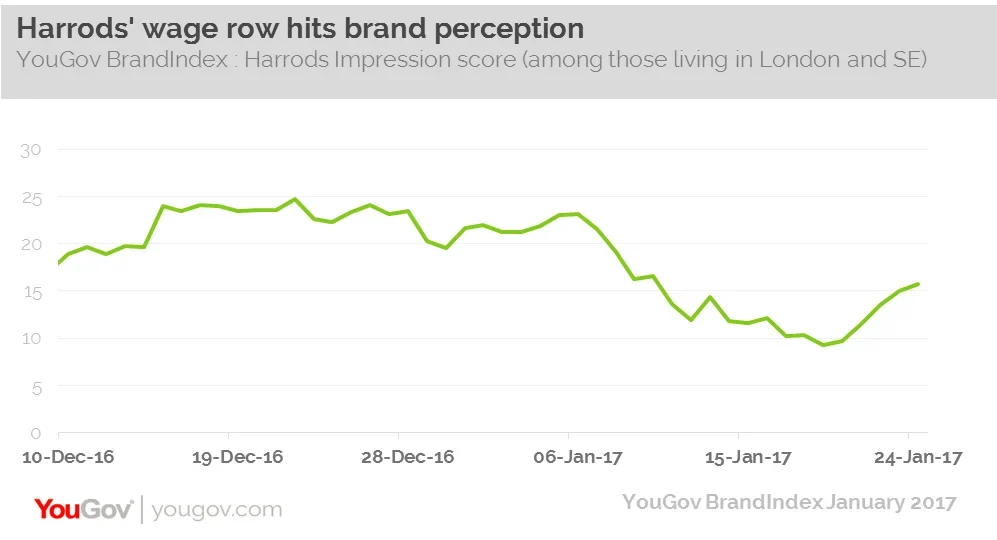The debate about where a diner’s tip should go to has been in the news several times in recent months.
Renowned chef Michel Roux Jr was condemned not only for paying his kitchen staff well below the minimum wage, but also for treating the ‘service charge’ added to bill as restaurant income – thereby not distributing the tip to those actually doing the serving.
Towards the end of December, there was a similar row involving luxury department store Harrods. On this occasion waiting and kitchen staff took industrial action. They alleged that the business’s owners retained up to 75% of service charge, which reduced pay by up to £5,000 a year. As a result, demonstrations took place outside the store in protest.
Harrods has subsequently vowed to let staff keep 100% of the money raised from restaurant tips. However, YouGov brand tracking data shows what damage was done to consumers’ perception of Harrods while the dispute was ongoing.
Given the location of Harrods, the biggest decreases have occurred in London. Among respondents across Britain, Harrods’ Impression (whether a respondent has a positive or negative impression of the brand) dropped by 10 points. However, in London and the South East, its score has decreased by 13 points (from +23 to +10). In both cases it has now started to make a very slight recovery.

| Find out if we track your brand | Click here |
|---|
Because of the type of business Harrods is, in this instance the impact on the bottom line may well be minimal as many of those that now think worse of the business would not ordinarily shop there anyway.
Our previous research shows that 70% of the population at large think that the current minimum wage is too low, with around a fifth (21%) thinking the it is at about the right level. Given this, many brands that fail to pay the minimum wage could encounter some degree of public antipathy.
In recent times brands such as Sports Direct, and more recently JD Sports have suffered following stories about alleged improper wage practices. Previously, in September 2015, we explored how a previous tipping controversy implicated Pizza Express.
Businesses being heavily criticised for seemingly short-changing staff is in stark contrast with German supermarket brands Aldi and Lidl. Those brands – recently confirmed as the top two brands in YouGov’s annual Buzz Score Rankings – have been proactive in increasing wages and this has been reflected in improved consumer perception. Indeed, we have noted a direct link between their progressive wage policies and improvement in public sentiment.
So while the year ahead brings challenges for retailers and the hospitality industry, those brands that try to make cut costs when it comes to wages should be appreciate the damage it can do when negative stories reach the public domain.
Image PA
This article originally appeared in City A.M.










